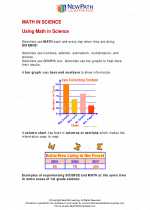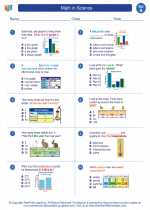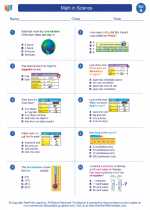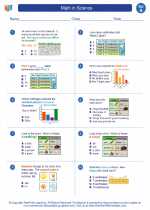Storms
A storm is a disturbance in the atmosphere that brings about severe weather conditions such as strong winds, rain, thunder, lightning, and sometimes snow or hail. There are different types of storms, each with its unique characteristics and effects. Let's learn more about them!
Types of Storms
- Thunderstorms: These are characterized by lightning, thunder, heavy rainfall, and sometimes hail. They often occur in warm, unstable air masses and can result in flash floods and strong winds.
- Tornadoes: Tornadoes are violent, rotating columns of air that extend from a thunderstorm to the ground. They can cause widespread destruction and are often accompanied by severe thunderstorms.
- Hurricanes: Hurricanes are large, powerful storms that form over warm ocean waters. They bring strong winds, heavy rain, and can cause storm surges leading to coastal flooding.
- Blizzards: These are severe snowstorms with strong winds and low visibility. They can cause travel disruptions and dangerous conditions due to heavy snow and blowing snow.
- Monsoons: Monsoons are seasonal wind patterns that bring heavy rainfall to certain regions. They can lead to flooding and landslides.
Study Guide
Here are some key points to remember about storms:
- What are the main characteristics of a thunderstorm?
- How do tornadoes form and what are their effects?
- What are the key features of a hurricane and how is it different from other storms?
- What precautions should be taken during a blizzard to stay safe?
- Where do monsoons occur and what are their impacts on the environment and people?
Understanding the different types of storms and their impacts can help us prepare for and stay safe during severe weather events.
.◂Science Worksheets and Study Guides First Grade. Math in Science
Study Guide Math in Science - 1st grade level
Math in Science - 1st grade level  Worksheet/Answer key
Worksheet/Answer key Math in Science - 1st grade level
Math in Science - 1st grade level  Worksheet/Answer key
Worksheet/Answer key Math in Science - 1st grade level
Math in Science - 1st grade level  Worksheet/Answer key
Worksheet/Answer key Math in Science - 1st grade level
Math in Science - 1st grade level 

 Worksheet/Answer key
Worksheet/Answer key
 Worksheet/Answer key
Worksheet/Answer key
 Worksheet/Answer key
Worksheet/Answer key

The resources above cover the following skills:
EARTH AND SPACE SCIENCE
Earth’s Place in the Universe
Observe seasonal patterns of sunrise and sunset to describe the relationship between the number of hours of daylight and the time of year (e.g., more hours of daylight during summer as compared to winter).